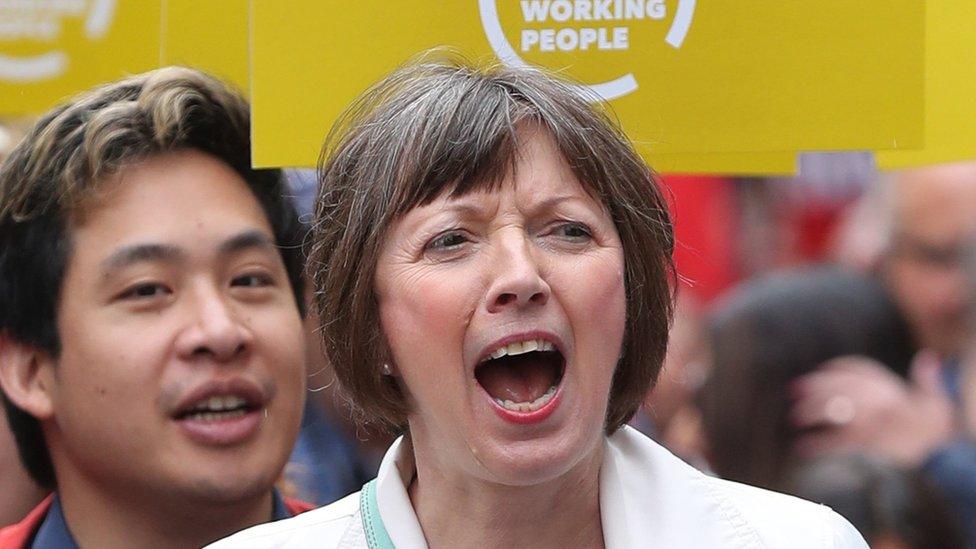TUC calls for ban on 'class discrimination' at work
- Published

Frances O'Grady has led the TUC since 2013
Trade union body the TUC has called for legal measures to tackle discrimination based on class at work.
Among the proposals, it said firms should be forced to report any gaps in pay between workers from different social backgrounds.
The body said graduates from wealthier families were more than twice as likely to start on a higher salary than their working-class peers.
The TUC's annual congress is being held in Brighton from Sunday to Wednesday.
It said that without new laws, people from working-class backgrounds would continue to face "direct" forms of discrimination, such as employer bias during job applications and interviews.
It also warned of indirect forms of discrimination, such as the use of unpaid internships as a gateway into jobs.
'Who you know'
It said the country was wasting some of its "best skills and talent" and urged the government to outlaw discrimination on the basis of class, as it had done with race, gender and disability.
TUC general secretary Frances O'Grady said: "If you're from a working-class family, the odds are still stacked against you.
"Everyone knows that getting that dream job is too often a case of who you know, not what you know. It's high time we banned discrimination against working class people.
"Let's have a new duty on employers to stamp out class prejudice once and for all."
The TUC says there are a number of definitions about what working class means, some historic and some more recent.
But it said that rather than "ignite a lengthy debate about definitions, we want to focus on how to tackle the persistent class inequality that still exists in Britain today".
It said other forms of disadvantage experienced by working-class people included low pay and the greater impact of austerity on working-class households.
- Published21 August 2019
- Published10 August 2019
- Published24 January 2019